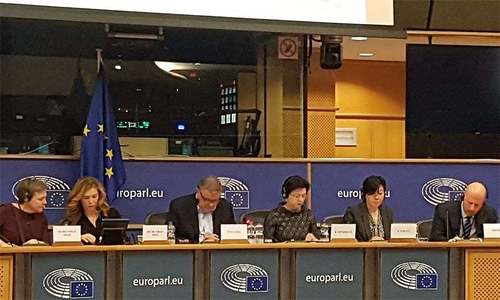ISLAMABAD: The European Commission has adopted a legislative proposal for 10 years (2024-34) to offer new European Union Generalised Scheme of Preferences (GSP) to remove or reduce duties on import of products to promote sustainable development in low-income countries.
Pakistan is the largest beneficiary of the current GSP plus scheme since 2014 — zero per cent duty on several hundred products under the current regulation, which will expire on Dec 31, 2023 and to which the new proposal will become the successor.
The European Parliament and the Council will now discuss the new proposal. Once adopted by them, the new GSP regulation will apply from Jan 1, 2024.
The EU’s GSP is a well-established trade and development policy instrument, which has been in place since 1971. The European Commission in Islamabad released on Friday details of the new legislation on GSP.
Under the current GSP+ system, which will end in 2023, the European Commission is continuously monitoring the progress made by beneficiary countries like Pakistan towards the implementation of 27 international conventions.
In the last monitoring reports, some progress had been positively highlighted, while concerns had been raised regarding child labour, torture, media freedom and access to justice, amongst others.
Commenting on Pakistan’s position in the current GSP plus scheme and prospects for joining the new scheme, EU Ambassador to Pakistan Androulla Kaminara said Pakistan’s economy greatly benefitted from the preferential access to the European market since being granted GSP plus status in 2014.
She said Pakistan’s exports had increased by 60 per cent, making the EU the most important destination for Pakistani goods.
The ambassador said: “But in order to maintain the trade preferences under GSP+ beyond 2023, Pakistan will have to redouble its efforts to turn the international conventions it signed up to into reality on the ground.”
To make the case to be eligible under the new GSP+ system, the envoy said, Pakistan, like any other potential beneficiary country, would have to demonstrate tangible progress to convince EU parliamentarians and member state governments.
For availing the GSP plus incentives, it is mandatory for the vulnerable low- and lower-middle-income countries to implement 27 international conventions (32 in the new proposal), related to human rights, labour rights, protection of the environment and climate and good governance to benefit from this arrangement.
Published in Dawn, September 25th, 2021















































